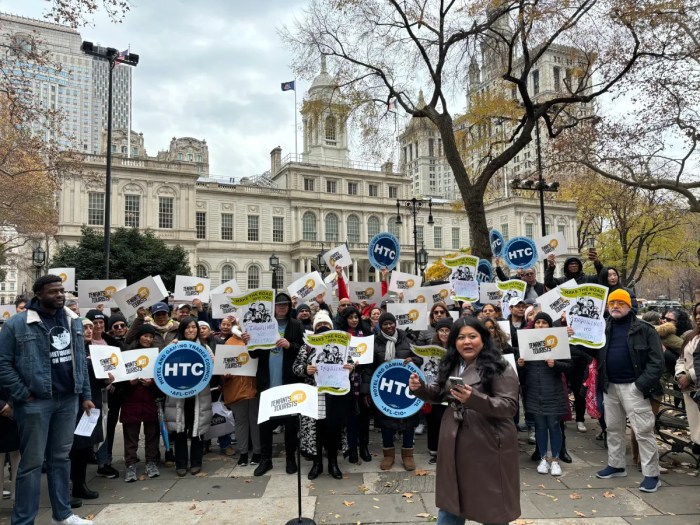By Naeisha Rose
It was announced on Monday that the Temporary Protected Status of 200,000 El Salvadorans in the United States has come to an end, and they will have to leave the country by Sept. 9, 2019, according to Secretary of Homeland Security Kirstjen Nielsen.
“In a word, this is cruel,” said Bitta Mostofi, acting commissioner of the NYC Mayor’s Office of Immigrant Affairs. “Last week, Mayor de Blasio joined mayors across the country imploring the Trump administration to save the nearly 200,000 Salvadoran TPS recipients that live and work across the U.S. But the president’s anti-immigrant agenda continues to hurt our city’s residents and set our economy back.”
In New York there are more than 4,000 people from El Salvador.
In 2017 the University of Notre Dame published a book called “Latinos in New York,” which reported that most Salvadorans in the city live in Queens, because of its diverse immigration population.
Salvadoran residents can be found in Jamaica, East Elmhurst, Corona, Flushing and Far Rockaway-Bayswater, according to the book. Census data shows they also make up the largest immigrant group in Long Island.
Homeland Security determined that Salvadorans could go back to their country now that infrastructure is no longer a problem for the designees, said Nielsen.
Salvadorans were granted protected status in the U.S. in March 2001 under President George W. Bush’s administration after two earthquakes rocked their country in January and February that year. More than 1,200 people died, 150,000 homes were destroyed and 1.6 million were left homeless, according to the United Nations Refugee Agency.
“The original conditions caused by the 2001 earthquakes no longer exist,” Nielsen said. “Under the applicable statute, the current TPS designation must be terminated.”
Immigrant activists say gang violence erupted in the wake of the earthquakes, and San Salvador, the nation’s capital, is considered the seventh most dangerous city in the world, according www.world
Not only has gang violence plagued El Salvador, but the country, along with Nicaragua, Guatemala and Honduras, can’t supply enough food for 3.5 million Central Americans because of a drought, according to www.oxfam.org, the website of OXFAM International, an organization working to combat poverty worldwide and trying to help El Salvador build a drought resiliency plan.
The World Bank’s data indicates that the combination of drought and gang violence has prevented the country from growing economically. El Salvador has a 61.3 percent deficit of gross domestic product and is the weakest country fiscally across all of Central America, which means that the 200,000 people deported in 2019 will be going to a country with no jobs.
“Over 4,000 Salvadoran New Yorkers with TPS have known our country as home for nearly two decades, and today the White House has decided to force them from their families, their jobs and their communities to return to a country that is simply unsafe and unable to absorb them,” Mostofi said. “Congress must pass a permanent solution for TPS recipients.”
According to MOIA, 30 percent of TPS holders are homeowners, 11 percent own businesses and they are parents to 192,000 children born in the United States.
Many immigrant activists and officials think the next country on the chopping block is Honduras, which has more than 86,000 people under TPS, according to the Department of Homeland Security. Honduran designees were originally supposed to leave the country on Jan. 5, 2018, but in order to give them enough time to leave in an orderly fashion, the timeframe was extended by six months to July 5.
Reach reporter Naeisha Rose by e-mail at nrose





































